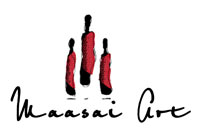Donations
With your financial support you will enable implementation of our projects. Learn more about how it works. Thank you very much!Newsletter
Our newsletter keeps you informed about our projects. You can sign up here.Search
DocKnowMaasai
DOCKNOWMAASAI HELPS TO PRESERVE THE TRADITIONAL KNOWLEDGE OF THE MAASAI FOR POSTERITY
The pastoral Maasai ensure the milk supply to the rural areas of East Africa
The Maasai are semi-nomadic cattle farmers and their way of life is described as transhumant. They settle only during extremely long dry periods when survival of the herds can be secured. Cattle are their status symbol and belong to the men. A man’s social status therefore depends upon the size of his herd. On average, Maasai herds comprise about 100 cattle. However, in isolated cases this may approach up to 1,000 animals.
It is the Maasai women who take care of the cattle. They are responsible for animal care, milk production and processing into butter ("eng'orno"), yogurt and cream cheese ("kule naoto").
Milk is the most essential basic foodstuff, a central component of traditional medicine and the primary food of the Maasai
- Today the Maasai secure the milk supply of rural and peri-urban regions of Tanzania.
- Trade in milk represents a regular source of income for pastoral people.
- Dairy products are the main food sources for the Maasai.
- Milk is also a central component of traditional medicine and is used as a basis for remedies against coughs, parasites and tuberculosis.
Maasai knowledge about medicine, animal husbandry and milk processing has been passed down orally over the centuries. However, today Maasai culture is in upheaval and only a few groups still live completely according to ancient tradition.
Our tasks:
- To collect and document indigenous knowledge of the Maasai in the fields of animal husbandry, food processing and medicine.
NACHRICHTEN
VSF International is looking for a Communication Officer
Our parent organization Vétérinaires sans Frontières International (VSF-Int) is looking for a...
VSF International is looking for a One Health Expert and an Advocacy Officer One Health
Our parent organization Vétérinaires sans Frontières International (VSF-Int) is looking for new...
Picture auction to benefit VSF
As part of the opening of the vernissage of the visual artist Guido Rupp, alias "GuRu", paintings...
VIDEOCLIPS
John Laffa sends Christmas greetings from Tanzania
Our Tanzanian employee John Laffa wishes all supporters and friends of Veterinarians without...
Steam cooking in the traditional way
Sweet potatoes are very popular in Africa. In Tanzania, many small traders sell steamed sweet...
Maasai student Lucas Moreto successfully finishes diploma course!
We congratulate our Maasai student Lucas Moreto! As reported, Lucas is studying law at the TUDARCO...












